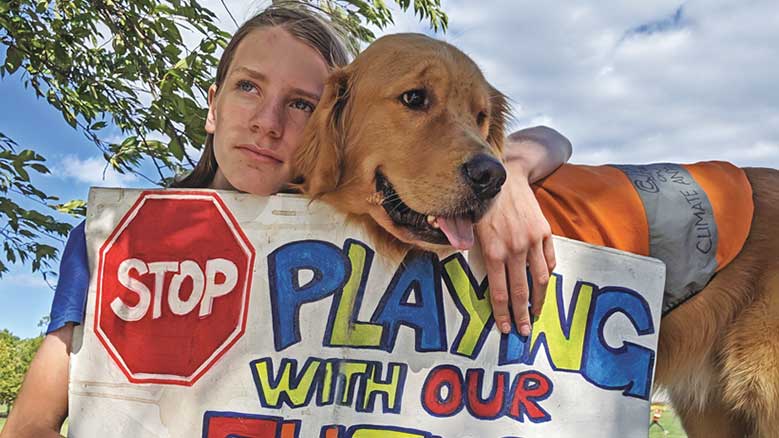Quaker Education: A Growing Appreciation
In Seattle, where I grew up, Quaker school wasn’t an option. Friends primary and secondary schools, which now number over 75 in the United States, are still rare birds in the West. But some of my most formative experiences as a child and teen were the gatherings of Quaker kids organized by North Pacific Yearly Meeting at its annual sessions and quarterly meetings. There were times I only felt “like myself” when I was among other young people who were being raised with Quaker values, nurtured gently in community by a wonderful cadre of adult volunteers.
When I was among other young Friends, I felt able to speak from my heart and to let myself enter fully and without fear into deep friendships. I felt at home in an atmosphere where the grown-ups in charge encouraged initiative and cooperation and modeled the loving listening that holds communities together. By the time I was graduating from high school, my closest friends weren’t from my school or neighborhood—they were Quaker kids like me scattered throughout the Northwest. I thought of the “Friendly adult presences” who helped knit us together not as teachers or babysitters, but more like godmothers and godfathers with both an affection for us young people and a spiritual calling to help us find and embrace our whole selves.
It was my realization of the power of learning and being in community together with others my age in a specifically Quaker context that led me to consider Quaker college as a next step. At Haverford, where I was fortunate enough to land (thanks to a generous financial aid package), I didn’t quite find the idyllic atmosphere of my Quaker youth. But I did see how an institution can adhere to Quaker values in a way that promotes respect for individuals as humans and scholars, creating a space where intellectual pursuit is eminently compatible with a moral stance toward the world that promotes peace, prizes integrity, and fosters mutual understanding. Haverford isn’t unique in this, as I have seen as I have come to know and respect people, Quaker and non-Quaker, who came up through other Friends schools and colleges. Anecdotally speaking, if folks like these are the “product” of Quaker education, it’s clear to me that the process responsible for this outcome is something very special indeed.
In Philadelphia, where I now call home, one of the greatest legacies of Friends’ long history in the region is the abundance of Quaker schools. We enrolled our son Thomas at a Friends school because we were eager to see how Quaker values were actually reflected in the school experience, in the teaching, in the community, and in the growth and interactions between the students. While it’s early yet—I’m approaching the end of my first year as a Friends school parent—I think it’s safe to say I’m convinced of the power and promise of education in the manner of Friends.
The articles in this issue of Friends Journal illustrate both that promise and also how Friends in education and in our institutions are addressing the challenges and opportunities of following Friends principles in the intellectual and spiritual education of our children. We hope you enjoy it, including the writing we’re pleased to showcase from our first annual Student Voices Project.
Yours in peace,
Gabriel Ehri
Executive Director




Comments on Friendsjournal.org may be used in the Forum of the print magazine and may be edited for length and clarity.